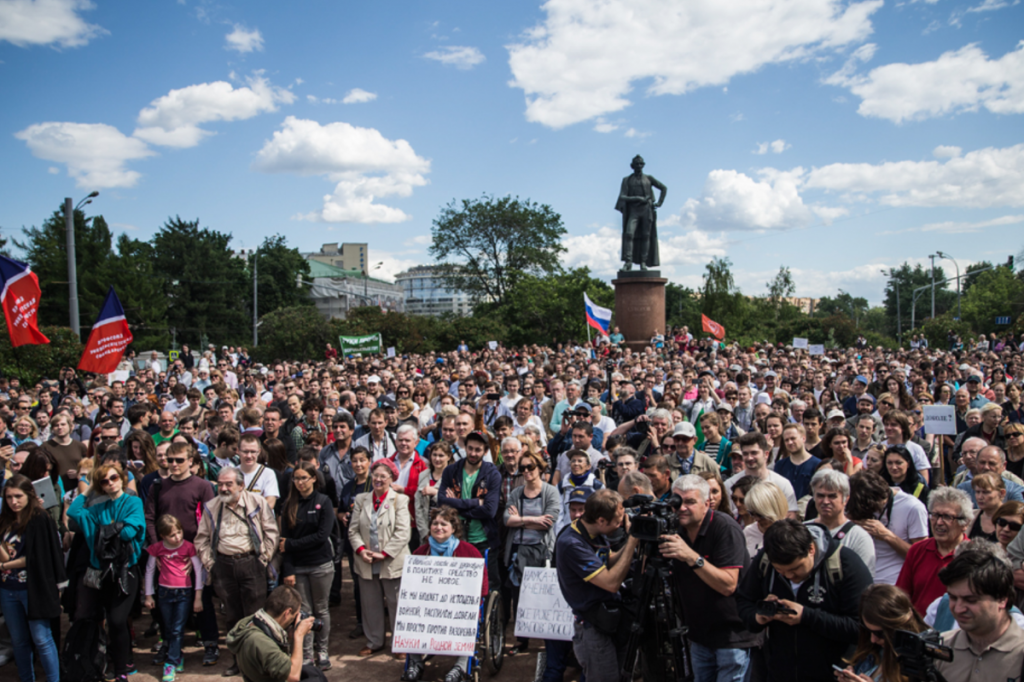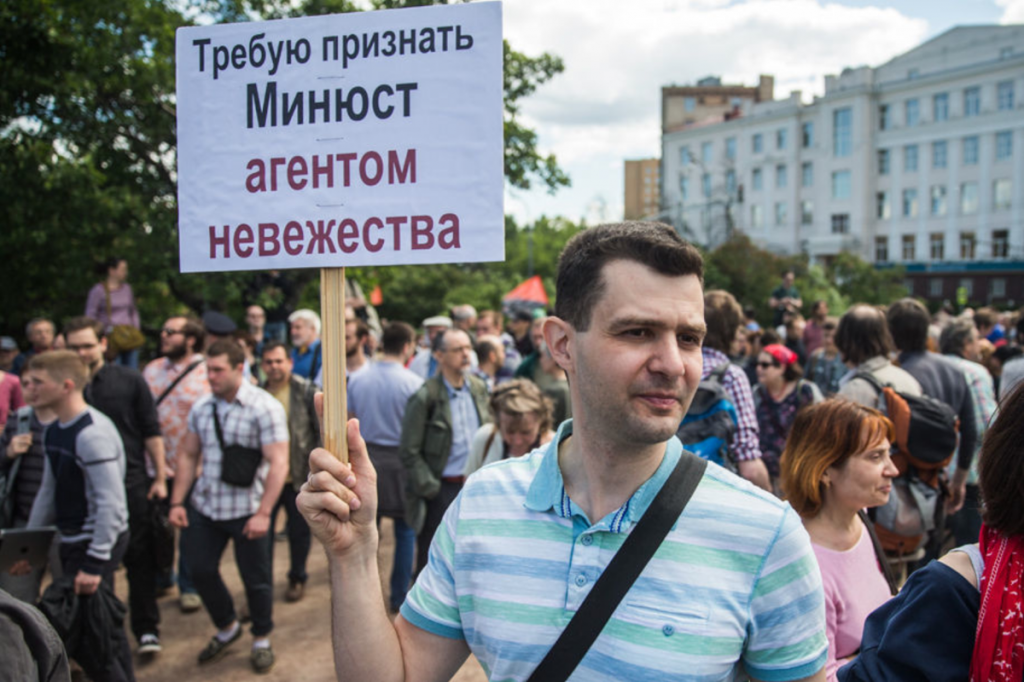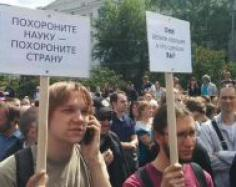On May 23, Russian President Vladimir Putin signed a new law that imposes significant restrictions on foreign or international non-government organizations operating in Russia. The organizations are deemed “undesirable.” The new law was approved by the Russian Prosecutor General’s office and the Ministry of Foreign Affairs. The Ministry of Justice is now drawing up a list of “undesirable” organizations.
Russian Civil Rights activists have actively criticized the new law.
“The law is directed against civil society in Russia,” said Sergei Nikitin, head of the Russian branch of Amnesty International. “This is a logical follow-up to the law against foreign agents,” he said, referring to non-profit organizations that are engaged in political activity and are financed from abroad.
It turned out though that not political activists, but Russian science became the first victim of the new law.
The Justice Ministry’s press service reported last week that non-commercial Dynasty Foundation had been added to the list of foreign-agent non-governmental organizations.
The Dynasty Foundation is the first and practically the only private nonprofit foundation supporting science and education in Russia today.
Dynasty Foundation was established ten years ago and financed by Dmitry Zimin, a well known scientist, engineer and businessman. He the creator and owner of Beeline, Russia‘s third largest wireless and second largest telecommunications operator.
Explaining his reasons for creating Dynasty Foundation Dmitry Zimin wrote:
“We cannot compete right now with the West in terms of innovation or with China in terms of mass production. That is why I think that the breakthrough for our country might come out of the sciences, especially basic science, which requires that we cultivate the intellect, not natural resources, and which will enable us to take the lead in technological innovation.
“This is why the Dynasty Foundation primarily invests in science and education.”
Dynasty Foundation seeks out talented scientists, scholars, and educators. It supports their ideas and projects in the natural and social sciences.
The Foundation’s priorities are the development of fundamental scientific research and education in Russia, creating conditions so that scientists can research and teach at home in Russia, and the popularization of science and civic education. These include programs that support gifted schoolchildren, future scientists, young physicists, mathematicians, biologists and teachers.
Each year, the Foundation holds fifteen open grant competitions. Russia’s leading scientists, teachers, and experts in education, publishing, and museum work are members of the Foundation’s Academic Council, which judges the science and education grant competitions.
In 2012, the Dynasty Foundation was elected to the Governing Council of the European Foundation Centre. The Dynasty Foundation was the only Russian foundation in the EFC Governing Council.
Since it upholds the principles of openness and transparency, the Foundation made its annual reports available to the public.
In mere ten years, Dynasty has gone from being a small private foundation to becoming a major philanthropic foundation in Russia.
The planned 2015 budget for programs and projects of the Foundation was 435 million rubles ($14.5 million by the rate prior to the inflation of this year). 352 million rubles in 2014, 328 million rubles in 2013, 314 million rubles in 2012.
Two weeks ago ten members and eighteen corresponding members of the Russian Academy of Sciences urged Justice Minister Alexander Konovalov not to include the Dynasty Foundation into the register of foreign-agent non-governmental organizations. The scientists stressed the fact that the foundation’s activities were completely transparent, and “had nothing to do with defending the interests of foreign states.” The Foundation was being financed from Zimin’s private resources, even though the finances arrived from foreign bank accounts.
In spite of the scientists’ protest Russian Justice Ministry has made the decision to assign ‘foreign agent’ status to Dynasty just because this organization is funded with Zimin’s private money, which he kept abroad.
Dmitry Zimin disagreed with the decision.
“I keep my money abroad. I have never concealed it. But Russia keeps some of its money abroad as well,” he noted.
“Certainly, I will not spend my own money acting under the trademark of some unknown foreign state. I will stop funding Dynasty,” Zimin told Interfax Agency on May 26.
When asked whether or not the foundation has other sources of financing, and whether it would be able to exist without him, Zimin said: “It is unlikely.”
According to many reports of Russian media Dmitry Zimin has left Russia. His whereabouts at the moment are unknown.
On June 6 in Moscow about 3500 people, mostly scientists, participated in the demonstration in defense of science and education in Russia.

Here are some quotes from the Russian Internet coverage of the meeting:
“If the agents of foreign influence do exist – and they can exist, the world is a cruel place – there is no chance that the Dynasty is one of them” says Artem, a young biologist. “It’s completely impossible to work in Russia without grants. I would think about leaving.”
Igor, PhD, Head of Department at the Joint Institute for High Temperatures, was standing with a placard that reads: ‘I demand to include the Ministry of Justice into a list of agents of ignorance.”

“This is a very bad signal: our society doesn’t need educated people”, Igor says. “I lecture and, if before today I would recommend students to apply for grants from Dynasty, now how would I keep them from going abroad or go into business instead of science? Even if the Dynasty continued to exist, the damage would be catastrophic. I cannot say to a student ‘go get a grant from a foreign agent.’”
Tamara, a young biologist, holds a poster:
“War is peace, freedom is slavery, ignorance is strength, Dynasty Foundation is a foreign agent.”
In the fall Tamara leaves to study neuroscience in Germany.
“I spoke with some young participants of the meeting, 22 to 25 years old graduates of the best Moscow Universities. 4 out of 6 are planning to leave Russia”.


